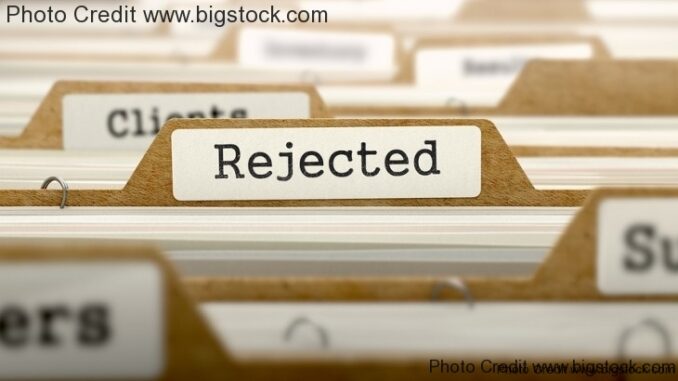
“You gotta put yourself out there,” mothers everywhere tell their kids. “You miss 100% of the shots you don’t take,” Wayne Gretzky famously said of his philosophy on failure. (For reference, Gretzky made a little under 18% of the shots he took on goal in the NHL.) That’s all good and well, but what about when you actually swing and miss? When you fall on your face lunging for the long-shot? When you’re rejected? After all, swinging for the fences isn’t necessarily all that hard, it’s stepping up to the plate in the first place, acknowledging that you might end up walking away with your head hung low in shame. Losing sucks, striking out is embarrassing, and getting a job rejection email is the worst.
Looking for a job is straining, it tests our will to keep trying, and it can leave you feeling worthless. And sometimes it’s hard to tell what’s worse: never hearing back or actually getting that rejection letter. After all, the rejection is confirmation you weren’t up to snuff, at least being ignored leaves open possibilities: maybe your application never got opened, or the company found the right candidate internally. So what should you do upon news of rejection? Sure, there’s advice to be had about maintaining your outward professionalism—and you’ll find some of it below—but the most important response is internal and has to do with how you react yourself, how you carry around that rejection moving forward.
How you respond to a job rejection depends on how the company delivers the bad news and how far along you made it in the application process. If you get a canned rejection letter that was sent by a robot, you probably don’t need to respond at all. Obviously things change if you receive a personalized email from a hiring manager, recruiter, or interviewer, and in any of those cases it’s respectful and appropriate to follow up with a short response thanking the person for their time and consideration.
Particularly if you’re communicating with a hiring manager (or anyone making that decision), it’s also in your interest to let them know you’d like to be considered for future openings, and you can even express a little outward disappointment about not making the cut.
Check out a sample response to a job rejection below:
Hi Dave,
Thanks so much for the opportunity to apply for the position and considering me for the job. I’m certainly disappointed but completely understand that you’ve chosen the best candidate for the opening.
It was a great experience meeting you and the team and learning more about the company itself during my interview visit. Ultimately it was a career-affirming experience and an inspiration to know that this type of work is being done at this level.
I wonder if there’s anything I might have done better during the interview or if there’s any area I should try to develop or improve upon moving forward in order to become a more attractive candidate. I understand you’re busy and don’t want you to feel obligated to answer here, but given your career experience I’d love a little insight and advice from someone in your shoes.
Thanks again and all the best to the team and new hire!
